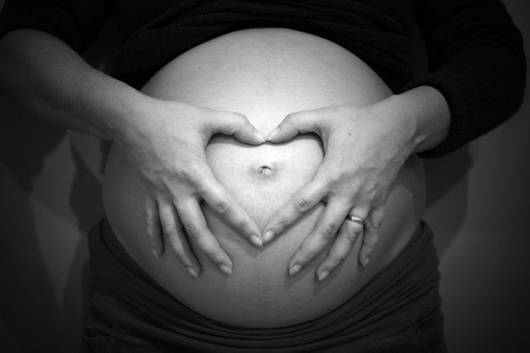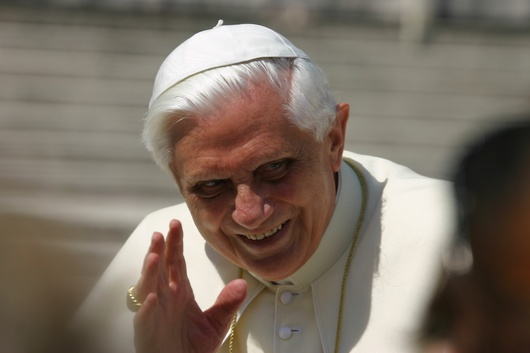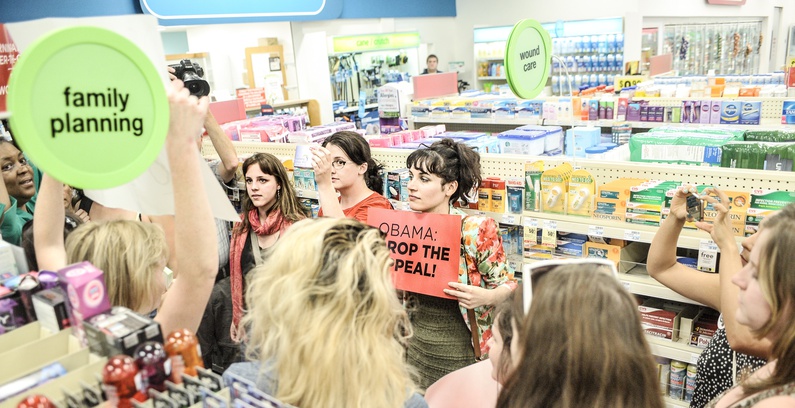
Pope Francis, rabbits and the opinions of young Catholics
Published on
Translation by:
Maria-Christina DoulamiUpon his return from the Philippines, Pope Francis said that "being Catholic does not mean breeding like rabbits."
What do young Catholics think of this? In this interview, three girls - two Italian and one Slovak - practicing Catholics confront all the taboo subjects of the Church, from condoms to the morning-after pill.
“Some believe, excuse the word, that to be good Catholics we must breed like rabbits. No, it's responsible parenthood.”
These are the words of Pope Francis on the plane from Manila, at the end of his trip to the Philippines, where, according to many, the huge population growth is one of the fundamental reasons for the country’s great poverty.
This declaration came as a surprise and spurred many controversies. This phrase, in fact, reopens the debate on the themes that have always been painful for the Church, such as contraception and birth control. But what do today’s Catholic youth think of these arguments?
Miriam, 31, from Sassari, Simona, 29, from Cosenza, and Petra, 24, from Uhrovec (Slovakia), were asked. All contribute to the activities of their religious communities: Miriam sings in the church choir, Simona is part of several prayer groups, and Petra, as well as participating in the youth group of her parish, has also taught Sunday school.
Yet, on certain issues, their opinions are very different. Let’s begin with the first question. "What did you think when you heard the Pope’s words?" Miriam did not like the comparison with rabbits, even if she thinks “that (the Pope) is right in general.” For Simona, however, a revolutionary pontiff has finally arrived: “He speaks of responsible parenthood, namely the need to be parents and not only creators of life.”
And Petra agrees with the Pope, real name Jorge Mario Bergoglio: “It is possible to avoid pregnancy without using contraceptives. The answer is natural family planning, or abstinence during a woman’s fertile periods.” This method, says Petra, could help birth control in countries like the Philippines.
'Sin' and birth control
 The words of Pope Francis seem to clash with the encyclical Humanae Vitae (1968) by Paul VI, the "handbook" of the Catholic religion on marriage, contraception and abortion. Here is a small excerpt: “The Church teaches that every marriage act must remain open to the transmission of life (...) it absolutely rules out the direct interruption of a generative process that has already begun, and, above all, direct abortion even if procured for therapeutic reasons”. Rigid words. Thus, married couples who choose not to have children might be considered bad Catholics. And can you really arrive at condemning abortion for therapeutic reasons?
The words of Pope Francis seem to clash with the encyclical Humanae Vitae (1968) by Paul VI, the "handbook" of the Catholic religion on marriage, contraception and abortion. Here is a small excerpt: “The Church teaches that every marriage act must remain open to the transmission of life (...) it absolutely rules out the direct interruption of a generative process that has already begun, and, above all, direct abortion even if procured for therapeutic reasons”. Rigid words. Thus, married couples who choose not to have children might be considered bad Catholics. And can you really arrive at condemning abortion for therapeutic reasons?
For our three girls yes, abortion is to be condemned, even if conducted for therapeutic reasons. “Abortion is the howl of the world against God, because it blocks his project,” says Simona. Petra too has a similar view: “Every human being has the right to live, even if faced with the possibility of a serious illness. I hope and believe that God can help vulnerable people to live a good life, even if they are sick.”
Nevertheless, Miriam and Simona do not allow themselves to judge those who choose not to have children. “I can say that good Catholics would not do this", clarifies Miriam, "but everyone has their own personal reasons.” An entirely different opinion is expressed by Petra, who instead defends them without hesitation, as long as, of course, they rely on natural methods: "If married couples are unable to have children (e.g. for economic reasons), they can always practicing natural family planning. I would not call them 'bad Catholics'.”
Contraception and AIDS
 Contraception, however, is not only a tool to prevent unwanted pregnancies, but also serves to avert a much more serious danger: the transmission of diseases such as AIDS. Everyone will remember the uproar caused by the statement made by Pope Benedict XVI in 2009 about AIDS in Africa. A disease, recalled the Pope, that “cannot be overcome by the distribution of condoms which, in fact, accentuate the problems.” Miriam agrees with this view, while Petra can not understand the second part of the statement: "The condoms would increase the problems?". For Petra, however, "condoms are only a partial way to overcome AIDS."
Contraception, however, is not only a tool to prevent unwanted pregnancies, but also serves to avert a much more serious danger: the transmission of diseases such as AIDS. Everyone will remember the uproar caused by the statement made by Pope Benedict XVI in 2009 about AIDS in Africa. A disease, recalled the Pope, that “cannot be overcome by the distribution of condoms which, in fact, accentuate the problems.” Miriam agrees with this view, while Petra can not understand the second part of the statement: "The condoms would increase the problems?". For Petra, however, "condoms are only a partial way to overcome AIDS."
Simona, however, has a completely different opinion: "I think that Pope Benedict XVI has studied too much on books and too little in real life.” “The Pope is absolutely to be respected – she continues - but he is too anchored on old beliefs. I think with that expression he meant that the distribution of condoms encourages sex and as such, it does not stop the spreading of the virus. Obviously, as a conservative believer, he is encouraging complete chastity.”
One wonders if Simona, in addition to condoms, also supports the use of the pill. "Yes, I support it," explains Simona, "as a good Christian I should practice chastity and that's what I do when I'm not in love, but we cannot be hypocrites: when you are in love it is hard to stay away from each other, we are human and sinners, and so we have to love each other in a responsible manner, at least. And anyway, a possible surprise would be greeted with love! "
Morning after pill: murder or salvation?
 Recently, the Church had to speak out on another sensitive issue: the morning-after pill. In 2013, in Cologne, Germany, two Catholic hospitals refused to administer it to a girl who was a victim of rape. The issue, which raised many controversies, has divided the Catholic world. Their doubt is if the embryo is to be considered a human being already formed the next day, or not.
Recently, the Church had to speak out on another sensitive issue: the morning-after pill. In 2013, in Cologne, Germany, two Catholic hospitals refused to administer it to a girl who was a victim of rape. The issue, which raised many controversies, has divided the Catholic world. Their doubt is if the embryo is to be considered a human being already formed the next day, or not.
For Simona, the morning after pill recreates more or less the same terms as that "normal" one to be taken every day, which she approves. “Of course, I agree with the consumption of the morning-after pill, in any case, at least until we are certain that the embryo has not already formed the next day. I do not think we can speak of murder, which is completely different to abortion, as here you are aware of ending a life. A woman must still be free to decide.”
Miriam, however, utters a resounding no, "As a Catholic, I know that an embryo already formed, although tiny, is already a life with a soul, and has the right to be born, so I am also against the morning-after pill. I think that abortion is never the solution, even after a rape. Indeed, I think it represents a further trauma.”
Petra admits she is unable to imagine the situation of a victim of sexual violence, but adds: "If I were a rape victim, I think I would not take the morning-after pill. I would pray and I would wait and see what happens. If I was pregnant, I would keep the baby.”
Abortion, the morning-after pill, rabbits: These girls, united by the same faith, have decidedly different opinions on issues of bio-ethics. And why shouldn't they? They should have no problem in challenging the position of the Pope, if they consider it necessary.
Translated from Papa Francesco, i conigli e i pareri delle giovani cattoliche



